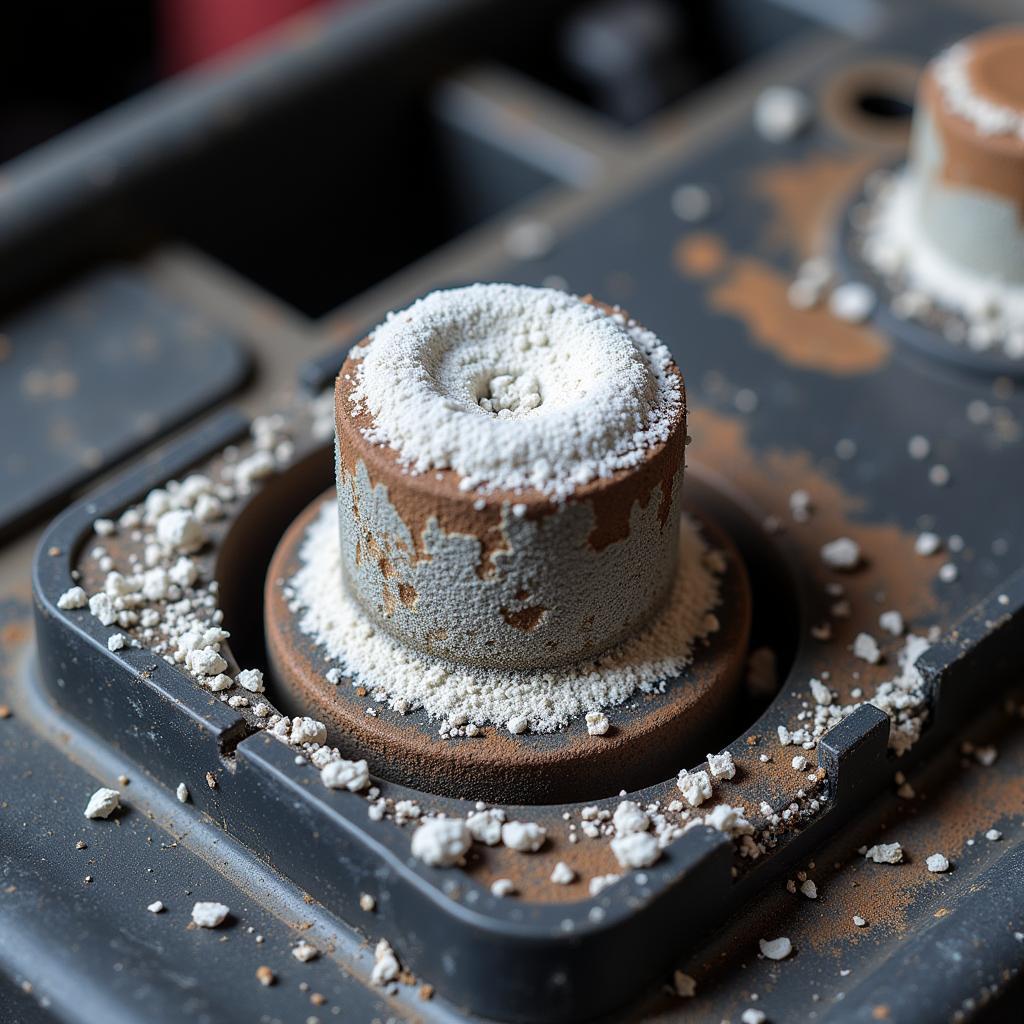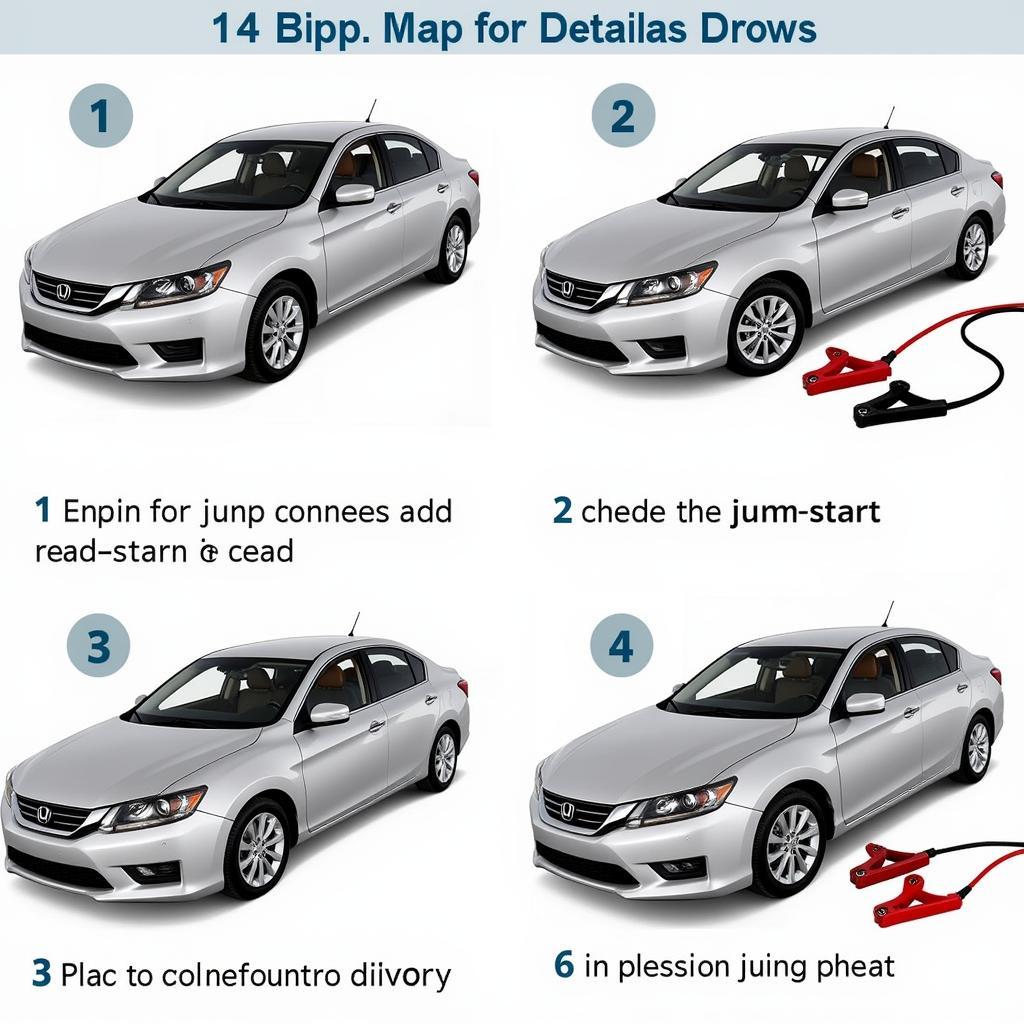Car battery failing symptoms can be subtle and often go unnoticed until it’s too late. Understanding these signs is crucial to avoid being stranded with a dead battery. This guide will equip you with the knowledge to identify, diagnose, and address car battery problems before they leave you in the lurch.
A failing car battery can manifest in various ways, from slow engine cranking to dimming headlights. Ignoring these symptoms can lead to more significant issues, impacting your vehicle’s performance and reliability. Are you experiencing any unusual electrical behavior in your car? If so, you’re in the right place. Learn how to diagnose and fix those issues yourself, saving time and money. ford key fob battery can also be an early indicator of a failing car battery.
Recognizing the Telltale Signs of a Dying Car Battery
Several key indicators suggest your car battery is nearing its end. Being aware of these car battery failing symptoms can save you from unexpected breakdowns.
- Slow Engine Cranking: If your engine cranks slowly or struggles to turn over, a weak battery is a primary suspect. The battery may not be providing enough power to start the engine efficiently.
- Dim Headlights: Noticeably dim headlights, especially when the engine is idling, can signify a failing battery.
- Clicking Sound When Starting: A rapid clicking sound when you turn the key is a classic sign of a low battery unable to engage the starter motor.
- Electrical Malfunctions: Experiencing flickering interior lights, malfunctioning power windows, or issues with the radio can all be linked to a failing battery.
- Dashboard Warning Lights: The check engine light or battery light illuminating on your dashboard can point towards battery problems.
- Swollen Battery Case: A physically swollen or bloated battery case is a serious indication of internal damage and requires immediate replacement.
- Old Age: Car batteries typically have a lifespan of 3-5 years. As your battery ages, its performance naturally declines, making it more susceptible to failure.
What Causes Car Batteries to Fail?
Understanding the causes of car battery failing symptoms can help you prolong the life of your battery and prevent future issues.
- Extreme Temperatures: Both extreme heat and cold can significantly impact a battery’s performance and lifespan.
- Excessive Vibration: Constant vibrations can loosen internal components and damage the battery.
- Overcharging/Undercharging: A faulty alternator can either overcharge or undercharge the battery, leading to premature failure.
- Parasitic Drain: Even when the car is off, certain electrical components can draw power, slowly draining the battery.
 Car Battery Failing Symptoms: Corroded Terminals
Car Battery Failing Symptoms: Corroded Terminals
How to Test Your Car Battery
Testing your car battery is a straightforward process. You can use a multimeter or have it tested at a local auto parts store.
- Multimeter Test: Set the multimeter to volts (DC). Touch the positive (red) lead to the positive battery terminal and the negative (black) lead to the negative terminal. A reading of 12.6 volts or higher indicates a healthy battery. A lower reading suggests a weak or failing battery.
- Load Test: A load test simulates the strain of starting the engine. A professional can perform this test to determine the battery’s ability to hold a charge under load. This is important to address dodge dart battery problems.
Troubleshooting and Solutions
Addressing car battery failing symptoms involves various approaches, ranging from simple fixes to replacements.
- Cleaning Battery Terminals: Corroded terminals can hinder the flow of electricity. Clean them with a baking soda and water solution and a wire brush.
- Jump Starting: A jump start can get you back on the road temporarily, but it’s crucial to address the underlying battery issue. If you have a new battery keeps dying, you might have a parasitic drain.
- Battery Replacement: If your battery is old or failing, replacement is the most effective solution. Remember to choose the correct battery type and size for your vehicle. Problems like the 2013 buick verano battery problems are often resolved with a replacement.
 Car Battery Failing Symptoms: Jump Starting
Car Battery Failing Symptoms: Jump Starting
“A properly maintained battery can significantly extend its lifespan and prevent unexpected breakdowns,” says automotive expert, John Davis, ASE Certified Master Technician.
Conclusion
Recognizing car battery failing symptoms is essential for maintaining your vehicle’s reliability and avoiding inconvenient breakdowns. By understanding the causes, testing methods, and troubleshooting techniques, you can effectively manage your car’s battery health and ensure a smooth and worry-free driving experience. Don’t wait until your car won’t start; be proactive in identifying and addressing car battery issues. Knowing what to look for can save you time, money, and the frustration of being stranded. Even if your if hybrid battery dies, you will still need a 12V battery to power accessories.
“Regular battery checks and timely replacements can prevent costly repairs and ensure optimal vehicle performance,” adds Sarah Miller, Automotive Electrical Systems Engineer.
FAQ
- How long do car batteries typically last? Car batteries usually have a lifespan of 3-5 years.
- What causes a car battery to drain quickly? Several factors, including extreme temperatures, parasitic drain, and a faulty alternator, can cause a battery to drain quickly.
- Can I jump-start a car with a completely dead battery? While possible, a completely dead battery may require a longer jump-start or even replacement.
- How can I prevent my car battery from failing? Regular maintenance, including cleaning terminals and ensuring proper charging, can help prevent battery failure.
- What are the signs of a bad alternator? Dim headlights, flickering interior lights, and a whining sound from the engine can indicate a failing alternator.
- Is it safe to drive with a failing battery? Driving with a failing battery can lead to unexpected breakdowns and potentially damage other electrical components.
- How much does a car battery replacement typically cost? The cost of a car battery replacement varies depending on the vehicle and battery type but typically ranges from $100 to $300.
